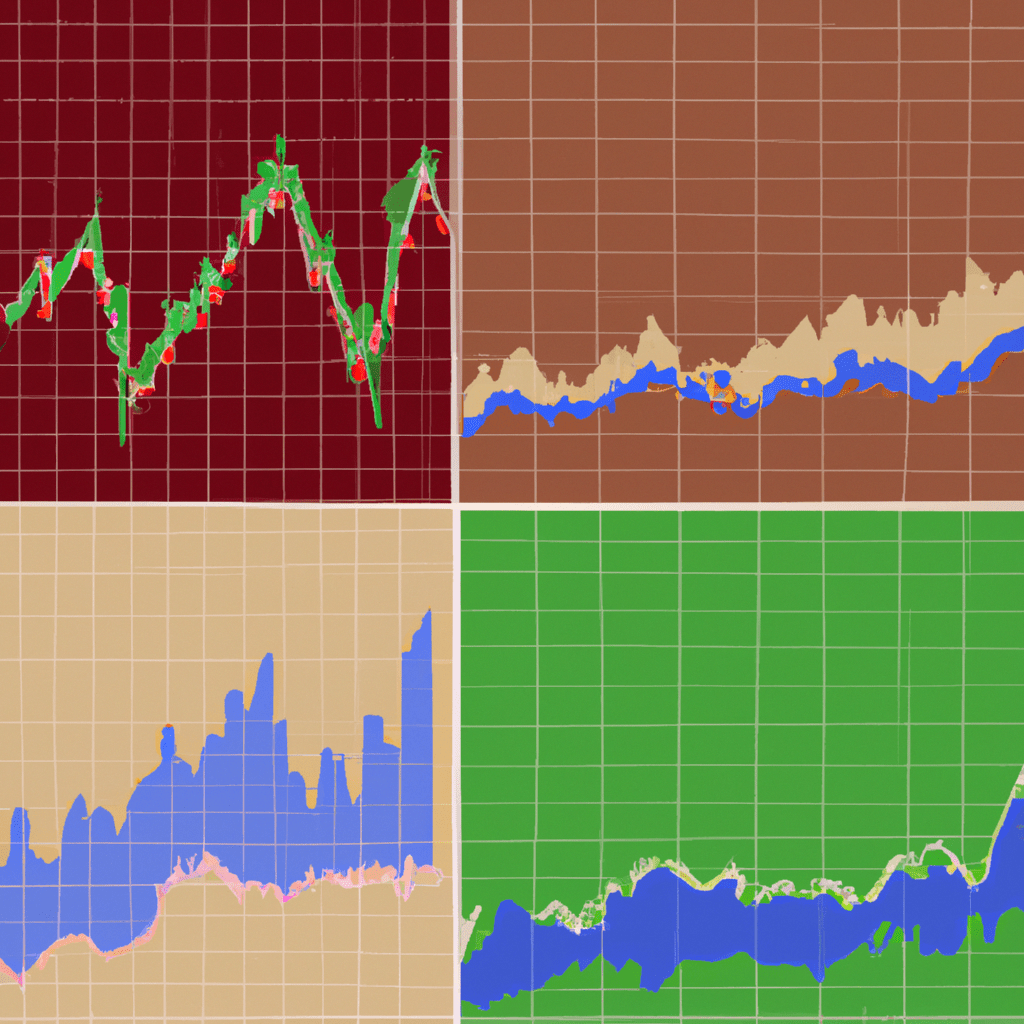The financial market is a complex and ever-changing environment that can be difficult to navigate. Investors and traders rely on various tools and indicators to make informed decisions about their investments. One such tool is the financial market index, which provides a snapshot of how a particular market or sector is performing. In this article, we will provide a comprehensive guide to understanding financial market indexes, including a closer look at the top performers in the world of stock indexes. We will also demystify indices in trading and explore how they impact the financial market's six sectors. Whether you are a seasoned investor or just starting out, this article will provide valuable insights into the world of financial market indexes.
1. “Understanding Financial Market Index: A Comprehensive Guide to World Stock Indexes“

Understanding Financial Market Index: A Comprehensive Guide to World Stock Indexes
Financial market indexes play a crucial role in the global economy by providing investors with a snapshot of the overall performance of various financial markets. These indexes are used to track the performance of specific sectors or the entire stock market and serve as essential benchmarks for investors and analysts. In this comprehensive guide, we will delve into the intricacies of financial market indexes, including popular stock indexes, the concept of indices in trading, and the six sectors indices.
Financial Market Indexes:
A financial market index represents the performance of a specific group of stocks or the overall market. It is typically a weighted average of the prices of a predefined set of stocks, giving investors an insight into the market's direction and trends. These indexes are calculated using various methodologies, such as market capitalization weighting, price weighting, or equal weighting.
World Stock Indexes:
World stock indexes encompass a wide range of global markets, enabling investors to gauge the performance of different countries' economies. Some popular world stock indexes include the S&P 500 (United States), FTSE 100 (United Kingdom), Nikkei 225 (Japan), and DAX 30 (Germany). These indexes not only reflect the performance of their respective countries but also offer insights into global market trends.
Popular Stock Indexes:
There are several widely recognized stock indexes that investors closely monitor. These indexes include the Dow Jones Industrial Average (DJIA), which tracks 30 large-cap companies listed on US stock exchanges, and the NASDAQ Composite Index, which focuses on technology companies. Other notable indexes include the S&P 500, which covers the performance of 500 large-cap US companies, and the Russell 2000, which tracks small-cap companies.
What is an Indices in Trading?
In trading, an index (plural: indices) refers to a representative sample of stocks or other financial assets that provide an overview of a particular market or sector. Indices serve as benchmarks against which investment performance is measured. Traders and investors use indices to analyze market trends, make informed decisions, and assess the relative performance of different investments.
What are the Six Sectors Indices?
The six sectors indices represent different sectors of the economy, allowing investors to track the performance of specific industries. These sectors are commonly categorized as Consumer Discretionary, Consumer Staples, Energy, Financials, Health Care, Industrials, Materials, Real Estate, Technology, and Utilities. Each sector index comprises a selection of stocks from relevant industries, providing a comprehensive view of sector-specific performance.
In conclusion, understanding financial market indexes is crucial for investors and traders. These indexes provide valuable insights into the performance of specific sectors or the overall stock market. By monitoring world stock indexes, popular stock indexes, and sector-specific indices, investors can make informed decisions and navigate the complex world of financial markets more effectively.
2. “Exploring Popular Stock Indexes: A Closer Look at the Top Performers in the Financial Market”

Exploring Popular Stock Indexes: A Closer Look at the Top Performers in the Financial Market
In the vast and dynamic world of financial markets, investors often rely on stock indexes to gauge the overall performance of different sectors and economies. These indexes serve as important indicators, providing a snapshot of the market's health and helping investors make informed decisions. Understanding the top performers among these indexes is crucial for investors looking to maximize their returns and minimize risks.
One of the most widely recognized types of financial market indexes is the World Stock Indexes. These indexes are designed to measure the performance of stock markets across different countries and regions. They provide a comprehensive view of global market trends and allow investors to assess the overall health of the world economy. Some popular World Stock Indexes include the S&P 500, FTSE 100, and Nikkei 225.
Another important category of stock indexes is the sector indexes. These indexes focus on specific sectors or industries within the financial market. By tracking the performance of these sectors, investors can gain insights into the strengths and weaknesses of various industries. The six sectors commonly considered in sector indexes are energy, materials, industrials, consumer discretionary, consumer staples, and technology. Examining these sectors' indexes can help investors identify potential investment opportunities and diversify their portfolios.
What exactly is an index in trading? An index represents a portfolio of securities that are selected based on specific criteria, such as market capitalization or sector. It serves as a benchmark for measuring the performance of a group of stocks or other assets. Investors can buy index funds or exchange-traded funds (ETFs) that mirror the performance of a particular index. This allows investors to gain exposure to a broad market or sector without having to buy individual stocks.
Now, let's take a closer look at some of the top performers in the financial market. The S&P 500, for instance, is a widely followed index that includes 500 of the largest publicly traded companies in the United States. It is often considered a benchmark for the overall health of the U.S. stock market. The FTSE 100, on the other hand, represents the 100 largest companies listed on the London Stock Exchange, providing insights into the performance of the UK market. The Nikkei 225, based on the Tokyo Stock Exchange, tracks the performance of the top 225 companies in Japan.
When it comes to sector indexes, the Technology Select Sector Index (IXT) is a popular choice. It tracks the performance of companies in the technology sector, including giants like Apple, Microsoft, and Amazon. The Consumer Discretionary Select Sector Index (IXY) focuses on companies in industries like retail, media, and entertainment, providing insights into consumer spending trends. The Energy Select Sector Index (IXE) is another notable sector index, tracking the performance of energy-related companies.
In conclusion, understanding and exploring popular stock indexes is crucial for investors seeking to navigate the complex financial market. World Stock Indexes offer insights into global market trends, while sector indexes allow investors to assess specific industries' performance. By keeping an eye on the top performers in these indexes, investors can make informed decisions and potentially maximize their returns. Whether it's the S&P 500, FTSE 100, or sector-specific indexes like IXT or IXY, each index provides valuable information for investors in their quest for financial success.
3. “Demystifying Indices in Trading: What They Are and How They Impact the Financial Market’s Six Sectors”

An essential component of the financial market is the financial market index. These indexes serve as a benchmark to measure the overall performance of the stock market. They provide investors with valuable insights into the direction of the market and help them make informed investment decisions. Understanding the concept of financial market indexes is crucial for anyone involved in trading.
So, what exactly are financial market indexes? In simple terms, they are a calculation of the weighted average value of a selected group of stocks, representing a particular market or sector. These indexes are often referred to as stock indexes or indices. They offer a snapshot of the market's performance by tracking the price movements of the constituent stocks.
The world of finance is vast, and there are numerous financial market indexes across different countries and regions. The most popular stock indexes include the Dow Jones Industrial Average (DJIA) in the United States, the FTSE 100 in the United Kingdom, the Nikkei 225 in Japan, and the S&P/ASX 200 in Australia. Each of these indexes represents the performance of a specific set of stocks, providing a comprehensive view of the respective markets.
But what impact do these indexes have on the financial market's six sectors? The six sectors commonly referred to in the financial market are technology, healthcare, consumer discretionary, financials, industrials, and energy. Each sector has its own set of stocks that contribute to the overall performance of the sector.
Financial market indexes play a significant role in these sectors by influencing investor sentiment and market trends. When an index experiences a significant increase or decrease, it can lead to a domino effect across the sectors. For example, if the technology sector index experiences a substantial decline, it may trigger a sell-off in technology stocks, impacting the overall performance of the sector. Similarly, a surge in the financial sector index can boost investor confidence, leading to increased investments in financial stocks.
Investors closely monitor these indexes to gauge the health of the market and assess its potential for growth. By analyzing the performance of sector-specific indexes, traders can identify emerging trends and adjust their investment strategies accordingly. It is crucial to stay updated with the latest news and developments in the financial market indexes to make informed decisions and mitigate risks.
In conclusion, financial market indexes are an integral part of the trading landscape. They serve as a barometer for market performance and impact the six sectors of the financial market. Understanding these indexes and their influence on different sectors is crucial for traders and investors looking to navigate the complex world of finance successfully. So, keep an eye on the popular stock indexes and stay informed about the latest trends in the financial market.
In conclusion, understanding financial market indexes is crucial for investors and traders alike. Through this comprehensive guide, we have explored the world stock indexes, delving deeper into the top performers in the financial market. Additionally, we have demystified indices in trading and examined their impact on the six sectors of the financial market. By grasping the concept of financial market indexes and how they operate, investors can make more informed decisions and navigate the complexities of the market with confidence. Whether it is the popular stock indexes or the lesser-known ones, having a thorough understanding of these indicators can help individuals achieve their financial goals. So, take the time to study and analyze the financial market indexes, as they serve as valuable tools in the world of investing and trading.





